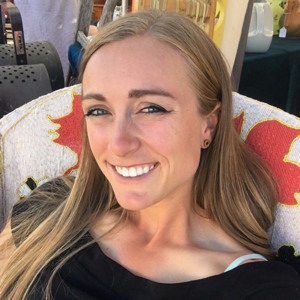Sustained speed was on full display at the 2021 Desert Solstice Track Invitational on Saturday and Sunday, December 11 and 12. The invite-only meet, taking place on a traditional track, brought together a fascinating combination of quick-footed trail and road specialists in the 24-hour and 100-mile event, and a number of those runners took home new American overall, track, and age group records, including Nick Coury, Camille Herron, and Pam Smith.
The weather was excellent, with temperatures ranging between 45 and 70 degrees Fahrenheit and low humidity, during the late fall event in Phoenix, Arizona. Though the Aravaipa Running race was open to spectators both in-person and on live stream, just 25 elite runners participated, the event pitting them against the eternal question, “How far can I run in a day?”
Any ultramarathon of this length holds surprises, and the 2021 Desert Solstice was no exception. Records were set, some runners finished at 100 miles or 200 kilometers into the event, and by the time it was all over, just three women and four men participated in the final hours of the 24-hour race.
2021 Desert Solstice Men’s Top Performances
The top performance of the weekend goes to Nick Coury, who nabbed a new men’s American 24-hour record. Previously held by Mike Morton at 172.45 miles, Coury ran a masterclass of a race to finish in 173.01 miles. He ran nearly every single lap under 2 minutes and 10 seconds, with a few at 2:20-plus sprinkled in there for refueling and bathroom breaks. Incredibly, his last eight laps were under 2:00, and his last few at or under 1:30 – that’s six-minutes-per-mile pace! Coury also won the 2020 Desert Solstice 24 Hour by posting 155 miles.
View this post on Instagram
Another record fell on the men’s side this weekend, this time by Jacob Jackson. Jackson, who came in second in the 24-hour race with 157.33 miles, set a men’s American 40-to-44 age group record for 200 kilometers. He broke it handily, coming in at 17:51:17, beating the previous 18:00:12 record by nearly nine minutes.
The final two men who stayed in the 24-hour race were Scott Traer, who finished with 152.36 miles, and Matthew Urbanski, who clocked 131.77 miles.
David Laney was the one to watch for the men’s 100-mile race, and he surpassed that distance faster than everyone else, clocking 12:34:59.
2021 Desert Solstice Women’s Top Performances
The winner of the women’s 24-hour race was Marisa Lizak in 140.18 miles. Lizak ran a gutsy race: she was on a great pace for the first 265 laps, with all of her laps under a 2:10. After about 87 miles, her pace gradually declined, and it was clear she was gritting through a lot of pain. Lizak was seen limping around the track for the last few hours and collapsed to the ground after her 24-hour victory.
Coming in second for the 24-hour race, Jian Springer set women’s American 50-to-54 age group records for 24 hours with 135.17 miles, 100 miles in 16:36:11, and 200 kilometers in 21:41:31.
Mandie Holmes was the third and final woman standing in the 24-hour race, finishing with 133.67 miles.
At the 100-mile distance, Camille Herron reset her own women’s American 100-mile track record to 13:21:51 from her previous 13:25:00. Herron, who looked strong and smooth throughout the race, was also the 2018 Desert Solstice champ, where she set the women’s 24-hour world record.
View this post on Instagram
Pam Smith set four women’s American 45-to-49 age group records during her 100-mile effort: 50 miles in 6:40:49, 100 kilometers in 8:21:36, 83.59 miles for 12 hours, and 100 miles in 15:15:02. She beat the previous records handily, each by 40 to 60 minutes.
Viktoria Brown bested the women’s Canadian 100-mile record, lowering the time from 15:19:45 to 14:47:13.
